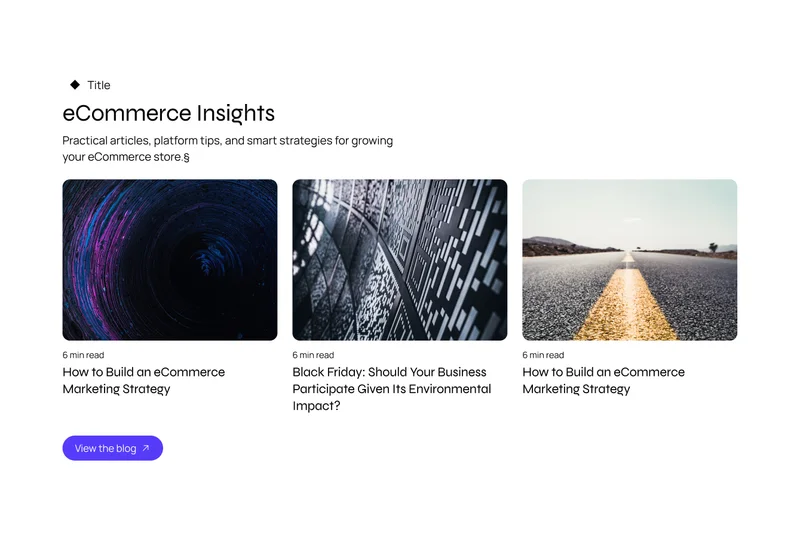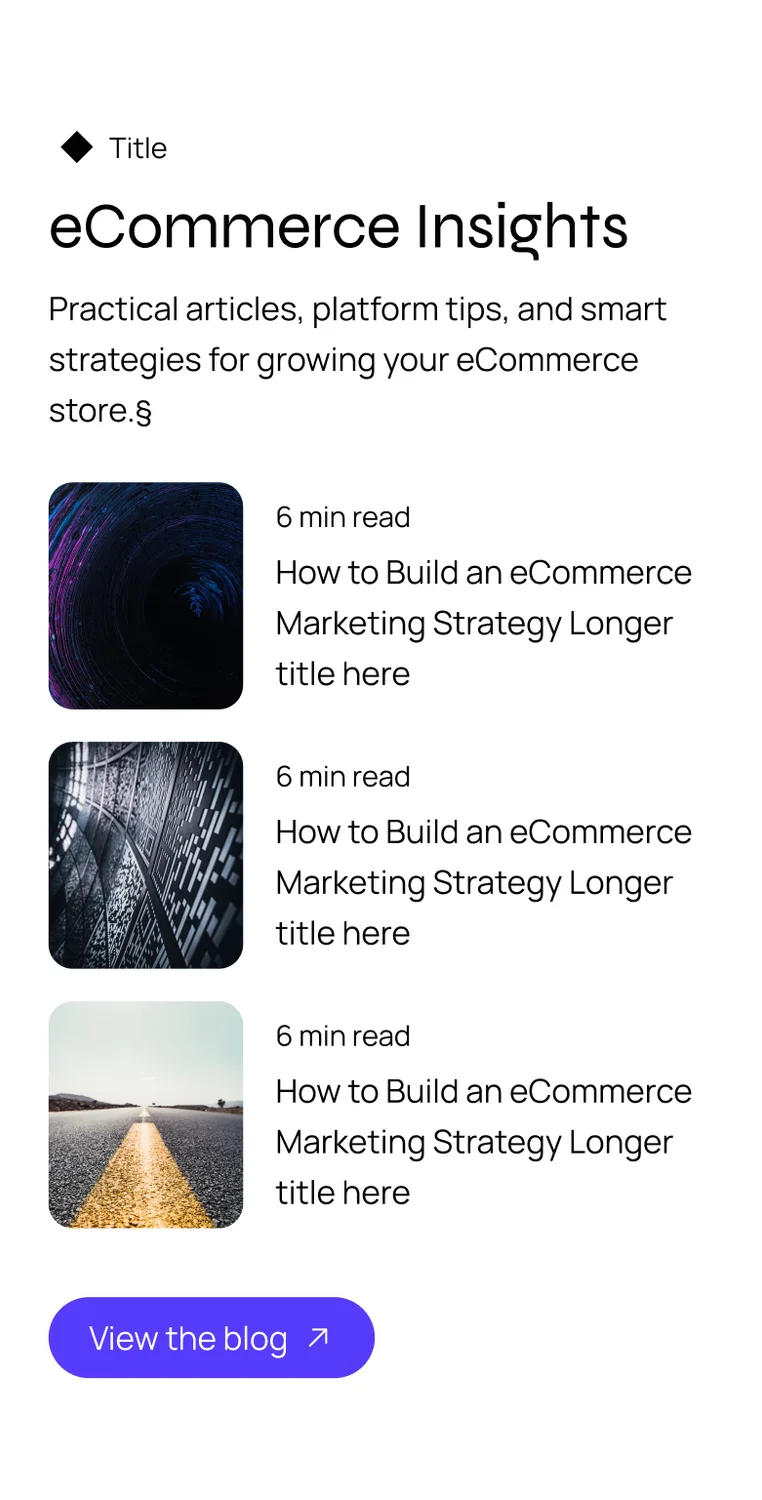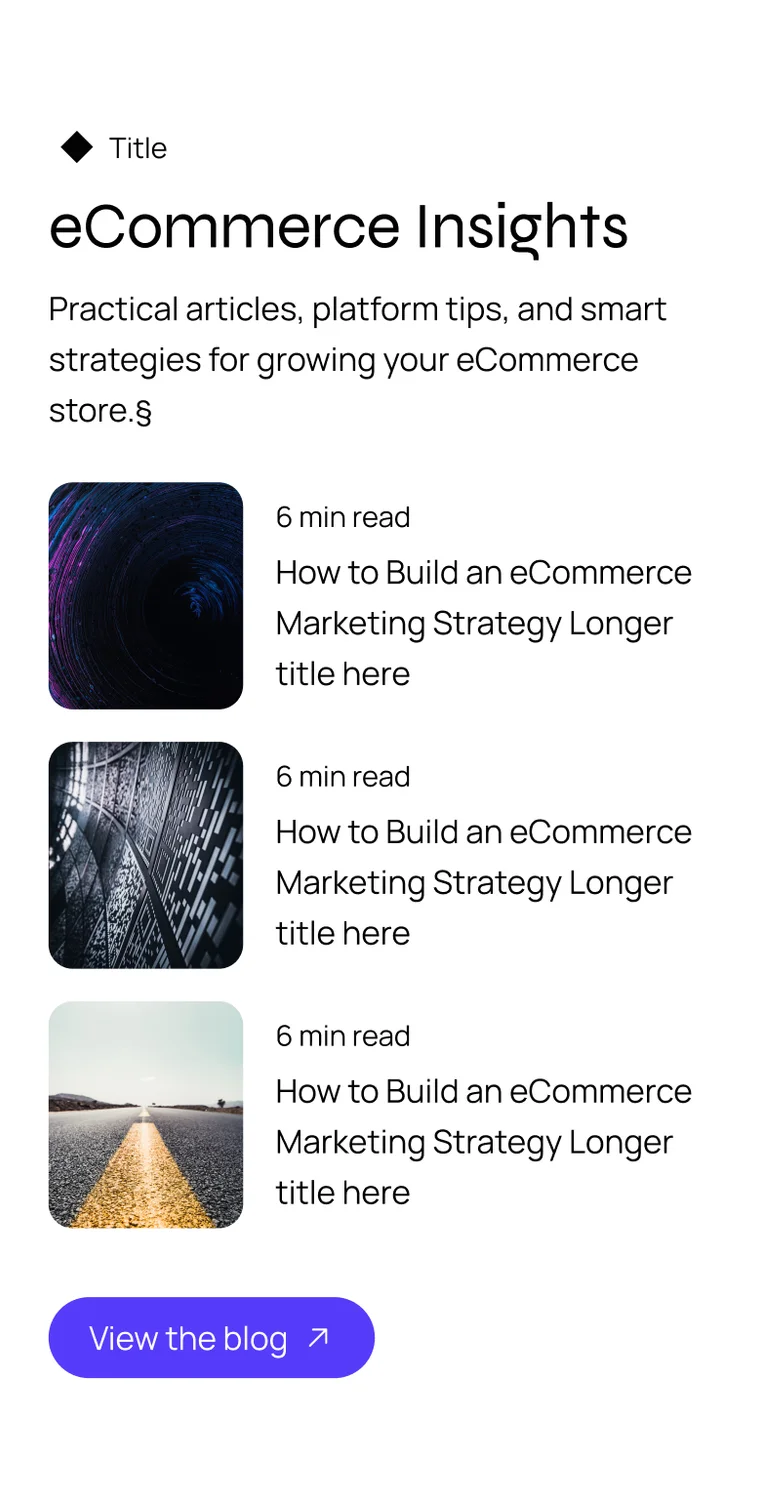June 20, 2022
As a Magento developer, it is easy to lose sight of the bigger picture. Spending the majority of my day customising and improving clients’ storefronts I sometimes forget that Magento is only a small part of the ever-growing eCommerce market.
What does the eCommerce market look like right now?
Overall it’s safe to say that the consumer spending shift from in-store to online continues and as such, investments into the eCommerce market by all companies wishing to sell products continue to increase.
Not only this but the traditional “brick and mortar” shops have a number of barriers to entry and as such, newly emerging businesses are foregoing this altogether and focusing solely on trading online.
Which eCommerce Platform is Best for Small Businesses?
If you have a small-scale business or are selling products to support a hobby or supplement your main income stream, there are quick and easy ways to get set up. For the smallest merchants, the simplest way to go about this is to get set up on a platform like eBay, Etsy or Facebook marketplace.
Within a short amount of time, you can set up your store and start selling products - job done. But what if instead of just selling products you want to establish a brand and start to grow your business? If you want to encourage return business and establish your brand, it is important to sell your products in a way that allows you to grow your brand simultaneously.
Ebay
With eBay this isn’t really the case, the majority of people purchasing items on eBay could be forgiven for having no idea of where the product is coming from. All correspondence is managed by eBay, with their branding and their terms and conditions underpinning every transaction.
Etsy
Etsy is a popular marketplace - it provides a better platform for sellers to launch their brand, with the ability to build up a profile and set your own policies. Etsy, however, is targeted at (as their website states) those looking to sell/purchase “handmade, vintage, custom, and unique gifts”. This implies it’s aimed at smaller businesses, which is great for brands that are just starting out or wish to keep their business small, but this product type will limit the potential to significantly scale production.
Another key detail to take into account is the type of products you are going to be selling. Some products may be more likely to sell through a multi-vendor platform than others, and one of the most significant product features that will impact this is price. Although multi-vendor platforms offer customer protection, communication and transparency with the vendor are often obfuscated and can reduce user confidence. This lack of reassurance can often impact conversion rates in that, as product prices increase, customers will become more reluctant to complete a purchase.
So what have we determined so far? If you want to get set up selling products there are a number of small, multi-vendor platforms that will allow you to get up and running quickly and relatively painlessly
These smaller multi-vendor platforms may not work for you if:
- You want to begin to establish yourself as a brand
- You want to build long-lasting customer relationships which will potentially lead to return customers
- The products you are selling are of a high price point
- The products you are selling are of a type where consumers need more information in order to purchase - i.e. they need to understand the features and benefits
- Your products attract an audience who might not like shopping via marketplace-type sites.
There is a stigma around “market” sellers, with concerns over lack of confidence or no guarantee of legitimacy. For example, a high-end luxury handbag is less likely to attract customers on eBay than it will via a brand’s own site.
eCommerce Platforms for Small Established Brands
What are your options if you’ve already established your brand, or you would prefer not to sell under the umbrella of a multi-vendor platform such as eBay or Etsy?
Depending on your budget, there are a number of ways to start your own online store and overcome the limitations highlighted above.
Some of the more popular platforms that allow you to do this are:
- Squarespace
- Wix
- Shopify
- Woocommerce
With good business understanding and minimal technical expertise, businesses are able to set up basic stores which will have their own URL, their own styling based on a template, brand logo and to any visiting customers the site will have the look and feel of a brand's legitimate online store.
Aside from the benefits this provides your customers, there are also some great features which will help you streamline your processes and centralise your internal operations. The following processes can be managed via the admin panel:
- Orders can be processed, invoiced and shipped
- Customer queries and complaints managed and tracked
- Content updates
- Transactional email updates for customers
What about Magento?
What does Magento have to offer, which makes it a prestige, enterprise-level eCommerce platform?
- Robust
- Secure
- Third Party Integrations
- Developer Community
- Open Source
With these platforms, you don’t have to adhere to processes set up by another company that may not give you the flexibility you require. They also offer a number of third party integrations, including those that allow you to sell products easily via Google Shopping or Facebook Marketplace etc. Another benefit of having your own storefront is that you can easily integrate Google Analytics, rather than rely on the platform’s own analytics feature which is often limited.
What is Magento?
Magento is used by over 250,000 merchants across the world. It’s ideal for those looking for a long-term eCommerce solution that is able to adapt to such a fast-paced and ever-changing market. The cost of setting up a Magento 2 site will be significantly higher than our suggestions above, however Magento is Open Source, allowing developers to modify the source code and add new features and functionality as required by your business.
The Benefits of Magento:
It’s Magento’s flexibility that outshines its competitors. Companies need the reassurance that they are able to adapt as their business develops and when a need for some new functionality becomes apparent, Magento allows for additional features to be developed. There are a number of third party extensions available to you which may cover the functionality you require, or you may need your developers to create this as custom functionality.
Magento is backed by a large developer community who are invested in its ongoing success. As an open-source platform, developers are able to continually contribute to core code and, as such, Magento continues to improve at a rate that is almost impossible to achieve outside of the open-source world. It gives peace of mind to vendors that as industry best practices continue to change and evolve, these will naturally be incorporated into Magento base functionality.
Magento 2 is now a part of the growing array of software under Adobe. Adobe (known for Photoshop, Illustrator, XD, Acrobat, Premiere and a whole host of design software) acquired Magento in 2018 and has provided continued investment ever since. Being the sole eCommerce platform under the Adobe banner provides even greater reassurance to merchants that Magento is a reliable option and will continue to be so for the foreseeable future.
So what can we take from all of the above?
As a developer, I think it’s an interesting subsection of web development to work as an eCommerce developer. Working with Magento can be frustrating and challenging, and once you’ve invested the time and effort into becoming a good Magento developer you are likely to want to continue working with it to make it all worthwhile. There is also huge scope for combining other technologies with Magento for a more interesting developer experience such as a headless PWA architecture (Vue Storefront) providing users with app-like site performance and features, or using the Hyvä theme which replaces Magento’s dependency on require JS, Less and jQuery powering the frontend and moves to more modern and performant technologies like Alpine JS and Tailwind CSS.
The Magento community are a great and varied bunch all working towards a common goal of improving Magento and making it the leading choice for eCommerce platforms, and although occasionally disgruntled, I can’t help but think that they must love it!
As a merchant, choosing your eCommerce platform is probably one of the biggest decisions in your eCommerce journey. The decision will have long-term repercussions and will ultimately play a key part in the level of success of your online store. As we’ve highlighted, however, there is no 'one size fits all’ and you will need to consider a number of factors when deciding which eCommerce platform will best suit your business:
- Annual revenue and therefore budget
- Scale of production - are you looking to sell thousands of products a day or is that not viable with your current methods of production?
- Are you invested in this long term?
- Are you planning to continually grow your business and establish yourself as a successful brand?
Ultimately Magento is suited to medium to larger-scale businesses looking for a robust, flexible and scalable solution which will support their growth for the foreseeable future. Magento provides a number of incredible solutions to business needs and continues to be one of the most effective platforms to sell through.
Maintaining and growing a Magento site comes with costs, and only businesses large enough to justify those costs will be able to viably utilise these benefits. Small to medium scale businesses looking to build their online presence can look to do so on less costly platforms, as this will give them the features they need to support their business and although they will have less flexibility than enterprise businesses with a Magento site, they will be able to effectively sell online and continue to grow their business
Last updated: August 3, 2022






